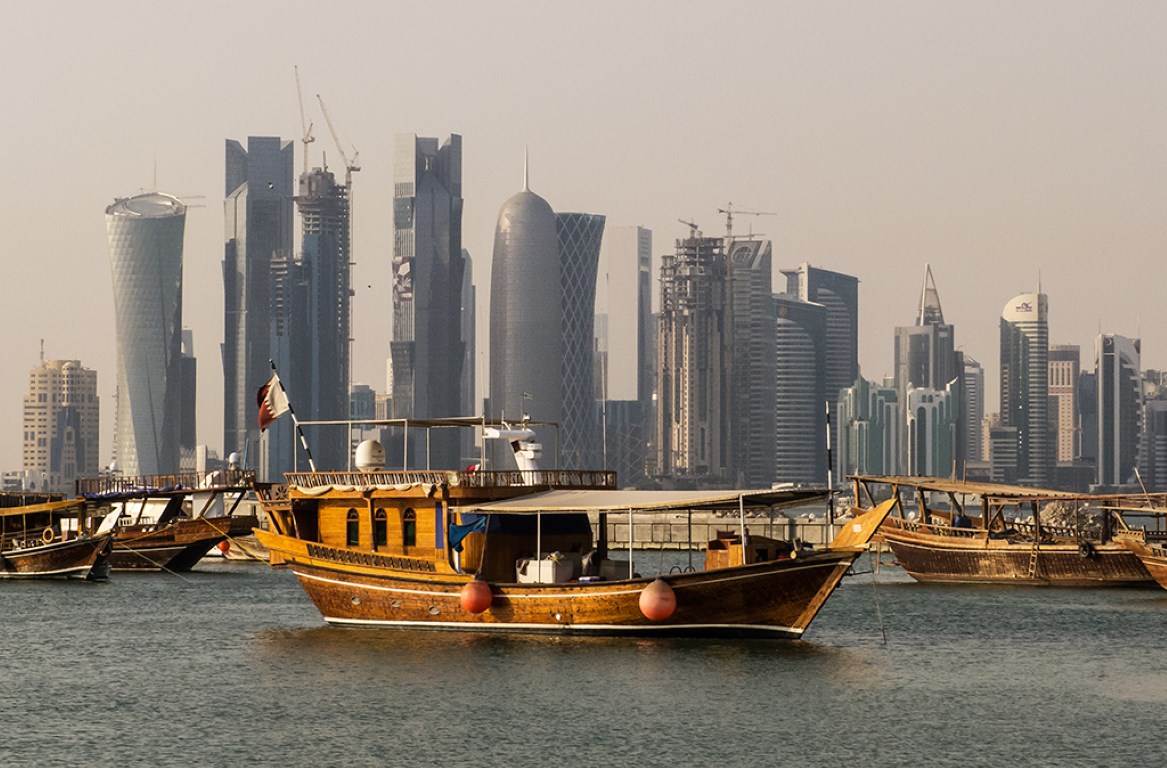US - Qatar relationship: Strategic or Uncertain
July 12, 2019 | Expert Insights

BACKGROUND
The Qatar-US ties dates back to 1972 when diplomatic relations were first established following the independence of Qatar. While they maintained a good rapport during the Cold War, the two countries became closer after the first Gulf war, when US military presence was established in 1991 with the Al-Udeid Air Base.
The United States is the sixth-largest trading partner of Qatar and trade between the two countries has exceeded $6 billion. Qatar has approximately 15,000 US citizens, of whom about 5,000 are employed in high-skilled jobs within the private sector.
In June 2017, a Saudi led coalition comprising Bahrain, Egypt, Saudi Arabia and the United Arab Emirates (UAE) imposed a land, sea and air blockade on Qatar claiming that the latter supported extremist groups in the region.
ANALYSIS
US President Donald Trump welcomed the Qatari Emir on his Washington visit. The White House said that the visit has contributed to enhancing economic and security ties. In addition, the discussion also focused on regional developments, security cooperation and counter-terrorism.
The US and Qatar formalized several deals in a signing ceremony at the White House, which includes Qatar Airways' purchase of five Boeing 777 freighters, and an additional commitment to purchase an unspecified number of Gulfstream large-cabin aircraft. Qatar's state-owned airliner further committed to using General Electric jet engines and services to power its fleet of Boeing 787 and 777 aircraft. Qatar Airways has also allocated nearly $92 billion to support the US economy by purchasing 332 US-made aircraft, providing more than 527,000 jobs.
Chevron Phillips Chemical and Qatar Petroleum signed an agreement to develop an eight-billion-dollar petrochemical plant along the US Gulf Coast, the second pact between the companies to build such plants in the last few weeks. The Qatari Defence Ministry additionally agreed to purchase Raytheon's medium-to-long-range NASAM and long-range Patriot Systems surface-to-air missile systems.
President Trump hailed the emir of Qatar as a friend and applauded the "large transaction" between the two countries as the emirate moved to finalize a number of energy and aircraft agreements with the US.
In a speech during the dinner, Qatar's Emir said that his visit to the US reaffirmed the ideals that the two countries shared and celebrated their mutual economic partnership. "Unfortunately, there are some in my region who do not share our beliefs. In today's world, at times, alliances have to be made with necessary partners, and certain allies are not actually friends," he also said, in an apparent reference to his country's Arab neighbours that are part of the blockade.
ASSESSMENT
- The Trump administration is trapped in the region's oldest family feuds between Saudi and Qatar. The friction was brought to the fore during the Arab Spring. We feel that the rivalries that once took the form of coup plots, battles and raids are now playing out mostly through expensive lobbying in Washington.
- We believe that the infrastructure of US military operations in Qatar is large and growing, and this would make it hard for the US to disengage with Qatar. We feel that Qataris have been engaged in tactical diplomacy and their relationship with Hamas and the Taliban has diplomatic appeal to many countries, including the United States, as they have benefited from these connections. Qatar is also the host to the US-Taliban peace talks to resolve the Afghan crisis.
- Trump's adviser, Jared Kushner is believed to have supported the Saudi led blockade because of a deal that fell apart with former Qatari Prime Minister Sheikh Hamad bin Jassim al Thani. Qatar declined to bail out the Kushner's' 666 Fifth Avenue property using its sovereign wealth fund.
Read more
Image courtesy - Wikipedia








Comments